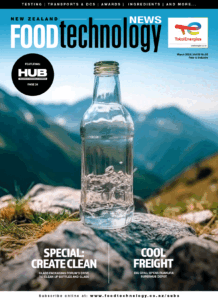 By Food Futurist, Tony Hunter
By Food Futurist, Tony Hunter

Many, if not all of our readers will be familiar with plant-based and cultivated meat, but what about growing animal meat components in plants? Some companies plan to do this by using plant molecular farming (PMF).
What is PMF?
PMF is the incorporation of new genes into plants, permanently or transiently, to produce proteins and essentially making them biodegradable single-use bioreactors. So why use plants instead of giant stainless-steel bioreactors? Well, plants have quite a few advantages.
- They are inherently safe because no human pathogens grow in plants.
- There is no need for sterile growth conditions as plants can use their own immune systems to fend off disease.
- Many of the methods used to incorporate genetic material into plants can be scaled to thousands of acres.
- The desired protein production can be achieved within 4-8 weeks or sometimes 3-5 days after inserting the appropriate DNA sequence.
- Capital expenditure is much lower. It’s been estimated that the capital cost of a 60,000L S1 safety level greenhouse can be built for 25-55% of the cost of a similar bioreactor facility.
- They are sustainable, many side streams can be extracted, and any remains are biodegradable.
Some major disadvantages are:
- Low productivity due to the larger size of plant cells vs bacteria (10,000x) and typical mammalian cells (1,000x). This results in relatively lower numbers of protein producing cell units per kilogram of tissue or litre of medium.
- High downstream processing costs, as generally the plant cells need to be broken open to extract the target molecule vs excretion of the target molecule into the growth medium in many other systems.
- The danger of genetic material “escaping” into related or even unrelated plants and ending up in food crops.
How can we mitigate the disadvantages?
- Using non-food/feed crops such as tobacco may limit the risk of gene transfer to food crops and reduce the chances of contamination.
- Using transient expression where the bacteria used to infect the plant are modified and not the plant DNA. This reduces the risk of contamination, which can be reduced further by production in contained facilities.
- New plant breeding techniques like CRISPR-cas can dramatically improve plant growth rates and increase yields.
- The use of vertical farming to address the low productivity and genetic contamination issues.
What will the future hold?
Animal proteins have already been made in plants with Moolec Sciences producing chymosin, used in cheese making, from safflower. They’re now developing soy and pea plants to produce beef and pork proteins for incorporation into alternative protein products.
The cross-over of PMF products extends to cultivated meat as well. Iceland-based company ORF Genetics produces human growth factors from barley as a bioactive cosmetic ingredient and wants a part of the action. It is turning its expertise to producing growth factors for cultivated meat growth media.
Similarly, Belgium-based Tiamat Sciences is targeting growth factors and other media components for growing cultivated meat. Tiamat are targeting opening a production facility this year. It’s claimed that growth media components made using PMF will be much cheaper than current products and could significantly reduce cultivated meat production costs. Another step on the journey to price parity with conventional meat.
PFM has been around for over 30 years and it’s taken time to build momentum but could have its day in the very near future. Many PFM products in the pharma space are either on the market or in clinical trials so the technology is becoming more and more sophisticated. Comparatively, food ingredient manufacture is still in the very early stages but certainly present no greater challenges than pharma products.
Could PFM also address one of the criticisms of changing from animal-based to plant-based diets that asks what else do we grow in place of all the corn grown to feed animals? In the not-so-distant future will much of the corn in the US be used, not for feeding animals, but for growing animal proteins to make meat?
Tony Hunter is a global futurist, food scientist, speaker and foresight strategy consultant. He consults and speaks globally, using his distinctive combination of scientific qualifications, business experience and detailed understanding of exponential food technologies to deliver a unique perspective on the future of food.

































































































